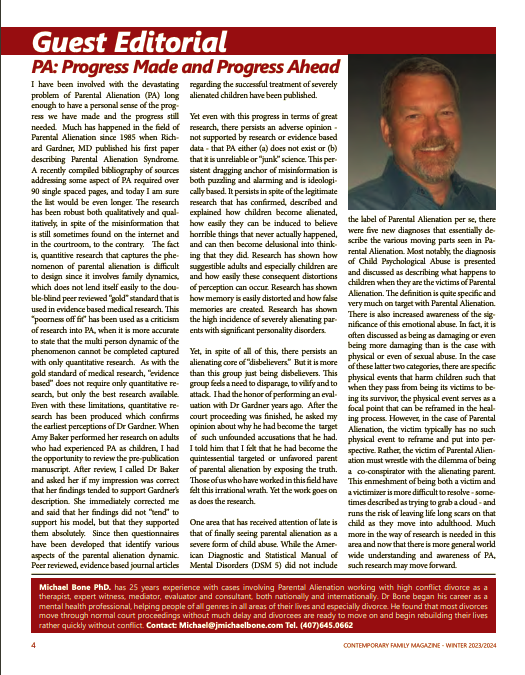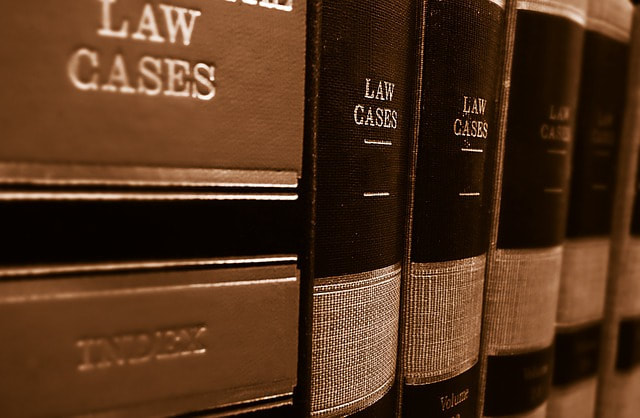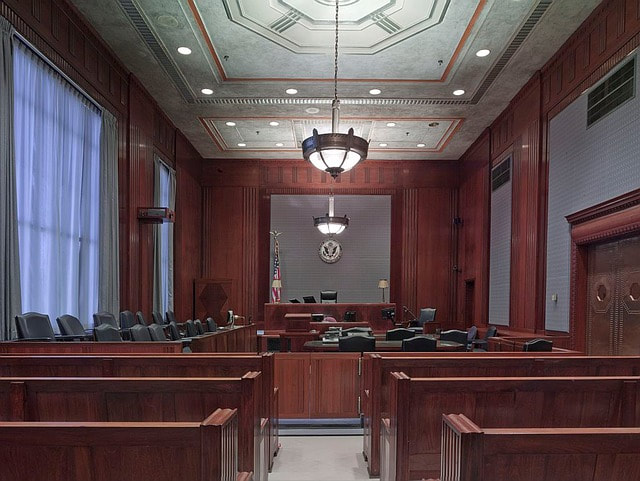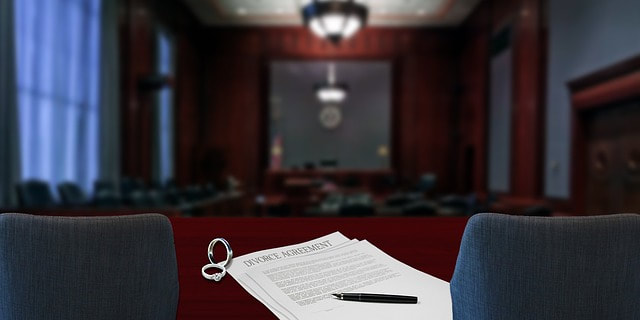|
Dr. Bone is featured in a Guest Editorial in Contemporary Family Magazine, an International Quarterly Publication for Parents and Family Professionals. The Magazine is a tool for family professionals, policymakers, child advocates and parents seeking to improve child outcomes. Read, download and share the full article here. To get help regarding your specific Parental Alienation problem, schedule a private Initial Consultation with Dr. Bone. This is an opportunity to have your specific set of circumstances examined and assessed by a National Level Expert. Available in-office, by phone or Skype. Schedule your Initial Consultation here.
Law, Family Law and Rules of Evidence: How it Actually Works (Hypothetical Example)
This is the third article in a series on Decoding Family Law, Parental Alienation in the Courtroom. You can read the first article here, and the second article here. This is the second article in a series on Decoding Family Law, Parental Alienation in the Courtroom. You can read the first article here.
Law, Family Law and Rules of Evidence: How It is Supposed to Work In order for fairness to prevail in any legal system, specific rules are created that seek to reduce or eliminate bias in the application of whatever law is being utilized. Laws or statutes are applied via specific rules that govern their use. Without these governing rules, the application of the same statute could and likely would have many varying outcomes. Cases involving Parental Alienation, by their nature, involve the vilification of one parent by the other. In such cases, one parent is falsely accusing the other parent of some serious parental misjudgment ranging from being emotionally abusive and neglectful, to being physically abusive, to being pedophilic. All of these accusations are put forth for the purpose of gaining advantage in the custody dispute.
As you may already know, a big focus of my work within the last few years has been that of education. I have found that most parents learn of the minefields and trip wires of parental alienation only after they have been stumbled upon and have exploded.
I frequently get the question, "How do you prove parental alienation in Court?"
My response is that, luckily, you do not have to prove it, you just have to get the Judge to believe that it is present. By this, I do not mean that your job is to falsely convince the Judge of anything, but that absolute proof of such a thing is not necessary. There are many a judge who "get it" based on how the case is presented and how the various players impact the judge. It is important to understand and recall that Parental Alienation is a form of child abuse. The manipulation of one’s children to the belief that their other parent does not love them, is the cruelest form of child abuse.
Let me say that again. Being a veteran of a war does not make one an expert on war. By that I mean this. The war veteran is an absolute expert on his or her experience with the war in which they found themselves, but this experience alone does not equip them to teach at, say The War College.
Likewise, one’s personal experience with Parental Alienation, as tragic as it may legitimately be does not - by virtue of that personal experience alone - qualify one to serve in an expert capacity for other people’s cases. Expertise to do this should be grounded in a combination of deep academic experience, research experience, clinical experience "in the trenches" as they say, with many families in a variety of circumstances, as well as with professional experience in a more general sense in order to place all of these specific experiences in a broader context. I have been involved with the devastating problem of Parental Alienation long enough to have a personal sense of the progress we have made, and the progress still needed. Much has happened in the field of Parental Alienation since 1984 when Richard Gardner, MD published his first paper describing Parental Alienation Syndrome.
Today is Parental Alienation Awareness Day (PAAD), a day created as a part of the global awareness campaign about Parental Alienation.
|
J. Michael Bone, PhD.Dr. Bone is an experienced consultant for cases involving Parental Alienation and has spent over 25 years working with high conflict divorce as a therapist, expert witness, mediator, evaluator and consultant, both nationally and internationally. Archives
June 2019
Categories
All
|










 RSS Feed
RSS Feed